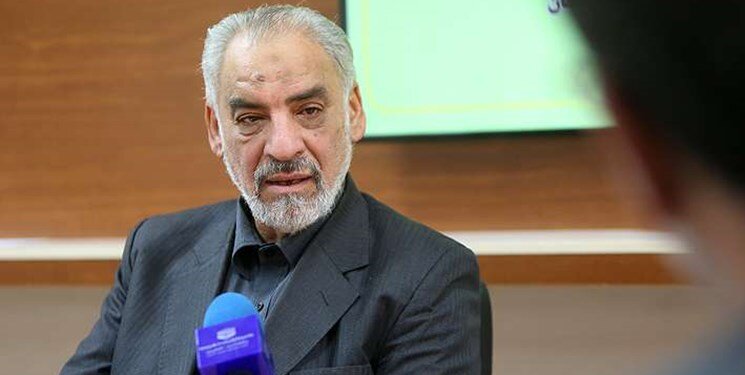Through seeking talks with Iran, Trump intends the region to recognize Israel: ex-diplomat

TEHRAN - Ahmad Dastmalchian, Iran’s former ambassador to Lebanon, has said that U.S. President Donald Trump’s objective in seeking talks with Iran is a recognition of the Zionist regime of Israel in the Middle East.
“The United States seeks recognition of the Zionist regime in the region and uses various countries as slave on this path such as the view it has about Saudi Arabia, and seeking talks with Iran is in line with this objective of the United States,” ISNA quoted Dastmalchian as saying on Sunday.
“However, the resistance front counters them. The United States seeks to divide the regional countries, but the resistance front makes efforts for the countries to be independent from the United States and the Zionist regime,” he remarked.
In a phone conversation with French President Emmanuel Macron on Wednesday, President Hassan Rouhani said it makes no sense to hold talks with the United States when sanctions against Iran are in place.
“From the viewpoint of the government, parliament and the people of Iran, negotiations with the United States make no sense when sanctions remain,” Rouhani said.
Rouhani noted that the U.S. refrained from fulfilling its commitments by withdrawing from the 2015 nuclear deal, formally called the Joint Comprehensive Plan of Action.
Pointing to Iran’s third step in reducing its commitments under the deal, he said that the action has been done under the supervision of the International Atomic Energy Agency (IAEA) and is reversible.
Rouhani said on September 3 that holding “bilateral” talks with the U.S. is not on the agenda.
“We’ve said it before time and again, and we say it again that we have no intention to hold bilateral talks with the United States,” Rouhani told the parliament as he was defending his nominees for the post of education and tourism ministers.
Trump abandoned the nuclear deal in May 2018 and imposed the harshest ever sanctions on Tehran. However, Trump has been repeatedly calling for dialogue with Iran.
Trump has announced that his administration is putting “maximum pressure” against Iran to bring Tehran to the negotiating table.
On May 8, exactly one year after the U.S. withdrawal, Tehran began reducing its commitments to the agreement at bi-monthly intervals.
In follow-up to that deadline, on July 7 Iran announced that it has started enriching uranium to a higher purity than the 3.67% as the Europeans missed the 60-day deadline to devise a concrete mechanism to protect the country from the U.S. sanctions.
In a letter to European Union foreign policy chief Federica Mogherini on September 5, Foreign Minister Mohammad Javad Zarif announced that as a third step Iran stops implementing all commitments related to nuclear research and development (R&D) under the JCPOA.
“The Iranian foreign minister sent a letter to Mogherini, announcing that the Islamic Republic of Iran stops all commitments in the area of research and development under the JCPOA because of consequences of the United States’ withdrawal from the deal and the three European countries’ failure to implement their commitments,” Foreign Ministry spokesman Abbas Mousavi said.
“In this letter, it has been said that this action is in line with Iran’s rights under the JCPOA and within the paragraph 36 of it and is in response to violation of the JCPOA during the past 16 months.”
NA/PA
